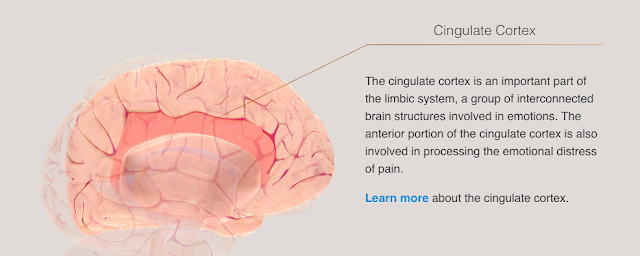Do Hurt Feelings Actually Hurt?
When we talk about "broken heart" "hurt feelings" or "rejection" we use the same vocabulary we'd use to describe a physical injury. A broken heart might be just a metaphor for our emotional anguish - after all there is no mistaking severed limb from a broken heart.
If you ask someone about the worst moment in their life, they might reach back into childhood and recount an time they were socially rejected. Getting dumped, divorced, looked over - why does it affect us so deeply? Why is it some people get over it so quickly, where others hold on to the pain for years.
I've been interested in emotion for a long time, emotion is an organizing principle that guides our everyday structures and interactions. Its harder to get a handle on emotions than other cognitive functions.
In 2003, Eisenberger and a team of researchers attempted to answer that question by examining how the brain responds to rejection.
The researchers watched people’s brain activity via an MRI scanner as they played a virtual ball-tossing game. The participants thought they were playing the game with other people in the study. But, in reality they were playing against a computer program. All of the sudden, the “players” stopped tossing the ball to the person in the scanner — and the scan lit up in areas of the brain associated with pain.
This mild episode of exclusion activated two areas of the brain that process the emotional and distressing aspects of physical pain. They are a C-shaped swath of tissue within the brain called the anterior cingulate cortex and an area located deep within the temporal lobes called the anterior insula.
It is true that rejection hurts. The brain processes pain of rejection in a manner similar to physical pain.
But, it may not be as simple as that. In 2014, Tor Wager, a cognitive neuroscientist at the University of Colorado Boulder, and a team of researchers trained a computer to analyze brain scans and develop templates of brain activity for physical pain and social rejection. When the computer analyzed a new scan, it could tell 100 percent of the time whether it was a brain in physical pain or a brain experiencing social loss.
Rejection and physical pain share common neural territory, “but when you really drill down and look at patterns [of activity] they’re different,” Wager says.
Still, Wager — whose lab studies how our thoughts and beliefs influence our brains and bodies — doesn’t discount the effects of social pain. “It doesn’t have to be the same [as physical pain] to be really important,” he says. Rejection can send our minds reeling with worry and self-doubt, and these thoughts “can directly interact with your nervous system,” Wager says.
The nervous system, in turn, interacts with the rest of your body. Maybe somewhere in these mind-body interactions Wager is trying to discern, there’s an explanation for why being dumped can feel like getting punched in the gut or why a broken heart hurts so much.



Comments
Post a Comment
ANONYMOUS PEOPLE
COMMENT POLICY: Freedom of Expression is given to those who stand up for what they are saying, not hiding behind anonymity. You must be a registered user, with a link to your Facebook page/ Youtube account/ or other social network where I can verify your identity.
Anonymous People: Your posts will automatically be deleted, and I WILL NOT EVEN READ THEM.